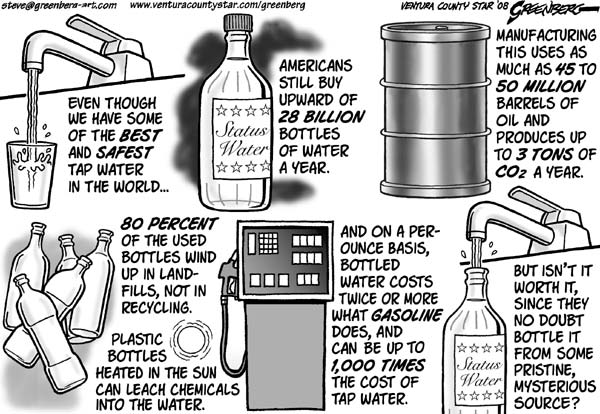Bottled water - a wasteful convenience
Do you really know the true impact?Bottled water facts from Do Something water campaign
More than a billion people around the world do not have access to safe drinking water. In Australia, we have the luxury of quality tap water, yet despite this:
|
ResourcesBottled water fact sheet from Emerald for Sustainability
Bottled Water PowerPoint presentation from Emerald for Sustainability What can you do?To learn more about the problems of bottled water visit the Do Something Website
For an example of what you can do in your community, visit EmfSus - Bottled Water, What a Waste campaign |

